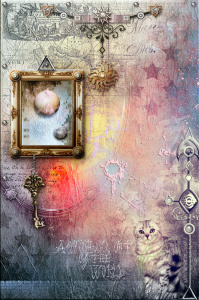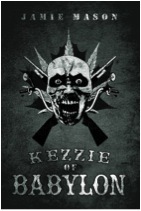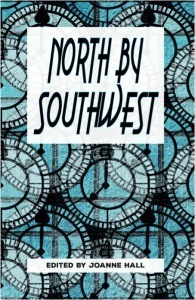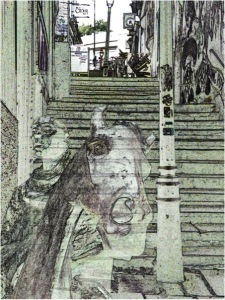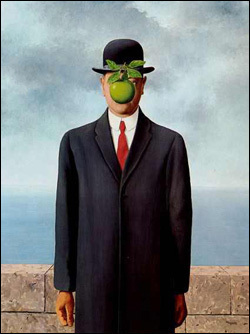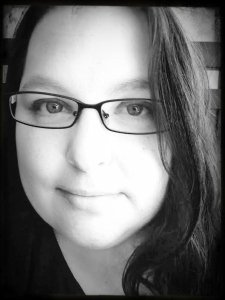Cat Rambo's Blog, page 51
March 23, 2015
Documents of Tabat: An Instructive and Useful Listing of the Chal Shops of Tabat
What are the documents of Tabat? In an early version of the book, I had a number of interstitial pieces, each a document produced by the city: playbills, advertisements, guide book entries. They had to be cut but I kept them for this purpose. I’ll release them at the end of April in e-book form; careful readers will find clues to some aspects of Beasts of Tabat in them. -Cat
An Instructive and Informative Listing of the Chal Shops of Tabat, being Pamphlet #4 of the second series of “A Visitor’s Guide to Tabat”, Spinner Press, author unknown.
While in Tabat, the visitor will want to try the drink it’s famous for: chal, salty fish and seaweed mixed with strong black tea in what is admittedly an acquired taste. The abundance of such establishments supplies the city dwellers with places to exchange thoughts and news. Many chal houses pride themselves on the antiquity of their brews, which may be years, decades, or in at least one case, centuries old.
Located at the edge of Salt and the Serpentine, the Dancing Cup hosts students from the nearby College of Mages. Go here to catch a glimpse of them showing off new spells and minor magics, particularly in the open air of the back courtyard. Their house chal is over a hundred years old, but they offer many variants, including cider and other fruit drinks. Open all hours.
Two chal shops near Tabat’s Arena are renowned: the Blade’s Savor and Berto’s. The fierce rivalry between the two often leads to free chal for customers willing to switch allegiance. Both shops frequently sponsor gladiators, many of which can be found drinking in one or the other. Bella Kanto and the majority of the Brides of Steel school can be found in Berto’s. These are the only shops you’ll find open during Tabat’s Games. Open all hours.
The Salty Purse, situated a block from the docks on Trade Way, claims a chal of over 200 years provenance, and serves only that, along with ship’s hardbread, doing a hearty business in the former, if not the latter. Open all hours.
In Tabat’s small theater district, actors and wealthy theatergoers favor the Fuchsia and Heron. The most expensive shop in the city, it subsidizes actors’ tabs and even pays a few to patronize it, ensuring a steady flow of Tabat’s most glittering figures. Open from the last afternoon bell till the last night bell only.
#sfwapro
March 13, 2015
Guest Post from J.T. Gill: Cultivating Imagination – 4 Reasons Why Fantasy Makes You Smarter
Find out more about J.T. Gill at http://worldsofhisown.com/
Reading makes you smarter. Let’s go ahead and assert that as fact. Research actually indicates that there is a direct correlation between reading and intelligence. For that reason alone, you should be reading fantasy.
Beyond that however, what’s so special about reading fantasy, specifically? And how does it make you smarter?
By experiencing different worlds and living life through the eyes of another, it makes us more imaginative and aware. It brings inspiration and shapes our realities. Think of the intelligence you would gain if you could literally live other people’s lives – the experiences of hundreds of others, accessible for you to see and learn from. Reading fantasy actually affords you that ability. And the mythical and magical elements involved make it that much more fun along the way.
So, here they are. 4 reasons why reading fantasy makes you smarter:
Reading fantasy…
1. Cultivates imagination
Perhaps the biggest thing to be had from reading fantasy is the cultivating of the imagination. The power of the imagination cannot be understated. It opens the door to creativity and passion, as well as innovation and invention. These outcomes result in a world far more interesting than simple black and whites, yes and no’s. They are the keys to unlocking an infinity of as-of-yet undiscovered combinations and results. There is plenty of scientific evidence on why imagination makes you smarter, but try it for yourself! Who knows what you might come up with?
2. Makes you more aware
Those who cannot imagine consequences are doomed to discover them. Reading fantasy allows you to gain an extra perspective on life, which leads to increases in awareness, and greater awareness only leads to intelligence. When you read fantasy, you observe natural cause and effect relationships, even within stories of a fantastic nature. Seeing this cause and effect relationships allows you to become more adept at living with such consequences in mind, and overall, make you a smarter person.
3. Leads to inspiration
Inspiration can come from anywhere, but it often comes a lot quicker when you immerse yourself in that area of interest you find yourself pursuing. If you want to be a writer, you need to read a lot and write a lot. If you’re a musician, you need to practice. It is only first through the rigidity of discipline that the fluidity of genius finds its roots. Fix that discipline of reading fantasy to find your genius in inspiration. In his book, On Writing, Stephen King writes, “Your job is to make sure the muse knows where you’re going to be every day from nine ’til noon. Or seven ’til three. If he does know, I assure you that sooner or later he’ll start showing up.” The fluidity of genius finds its roots.
4. Shapes your reality
Let’s face it: At times, reality can be dull. This is especially true when you have a set routine throughout your week. Fantasy allows you to jump out of that routine and into a completely different world. Who wouldn’t take advantage of this varied range of experiences to be had?
A word of warning here: You don’t want to live completely in a fantasy world either though. Like everything, there’s a balance. Make sure that you stay grounded. Fantasy is fun, interesting, exciting, and many more things, but it’s still fantasy. As long as you keep that in mind, you’ll be all right.
So there it is. Reading fantasy not only makes you smarter, but it makes you a better person overall. So get out there, find a book, and take advantage!
Find J.T. Gill at his website or on Twitter as @jt3_gill.
#sfwapro
March 12, 2015
Guest Post from Mercedes M. Yardley: Find Your Literary Voice
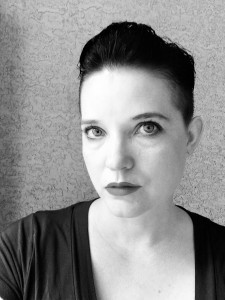 I grew up in a time where we were taught to conform. If you want to write like the Greats, then study the Greats. Creative Writing professors often told us to choose a writer we admired and then write a poem or short story copying their style.
I grew up in a time where we were taught to conform. If you want to write like the Greats, then study the Greats. Creative Writing professors often told us to choose a writer we admired and then write a poem or short story copying their style.
It accomplished what it set out to do, I suppose. We became more familiar with the writers we studied. We could pick out nuance and detail that were unfamiliar before. At the end of class, we emerged with a greater understanding of Faulkner, Frost, and Dostoevsky.
The only problem is that the woman sitting to the left of me wasn’t Faulkner. I wasn’t Frost. And the man in the front row never wanted to be Dostoevsky.
Authors have their own unique voices, and it’s a shame not to use them. Writers write because they care. They have something to say. They want to spread a message or they want to chat with their readers. They want to tell you things. Describe things. How is an author supposed to accurately express themselves when they have, in essence, learned to speak using somebody else’s voice?
Enough of that. You are YOU. The greatest thing you can bring to the literary table is yourself. Faulkner has already taken his seat. Do you know who should be sitting in the chair next to him? You. You have wonderful things to discuss.
Here are a few exercises and ideas that can help you find your own unique writing voice.
1. Write yourself a letter.
It doesn’t matter what kind of letter. What are you saying? What words do you use? Are you formal or folksy? Do you speak to yourself like a friend or is there a respectful distance there?
This exercise helps in a couple of ways. First off, it forces you to sit down and write, which is the first step. It’s also not meant to be daunting. Who cares about your literary success more than you? Nobody, that’s who. So write yourself a letter. Don’t judge yourself. This is a time to see what flows from your pen (or computer) when nobody is looking.
2. Record yourself talking about your upcoming project.
You can do it via audio or video, but the idea is similar to letter writing. What types of phrases do you use? Are you excited about the project? Now record yourself discussing a different project, preferably one that is in a dissimilar vein than your first project. Project #2 has a different ambiance, yes? Different subject matter? How do you sound while discussing it? Are your words the same?
3. Write a list of your favorite words.
Why are these your favorite? What makes them part of your vocabulary?
I had a member of my writer’s group say that he could always detect my work because I would use the words “broken” and “exquisite” quite often. And while this made me laugh, I realized that I do have choice words, and they convey exactly what I want to say. I’m not saying to use repetitive words in order to form voice, but to keep a lookout on your unique word set. These choices make you the writer you are. They’ll give you a hint on what your voice sounds like.
4.Realize that you might have more than one voice.
We discussed that one author doesn’t necessarily sound like another. And you might not necessarily sound like yourself all of the time. Perhaps that doesn’t make sense, but let’s go back to step 2, where you recorded yourself discussing two different projects. Two diverse projects might have two separate voices.
I realized that I have two distinct voices. One is a smart aleck type of voice with sarcasm and swagger, and it usually comes out while writing first person. I also have an elegant, much more ephemeral voice that uses higher and more lyrical language. This tends to come out when I’m writing in third person, and this voice is what I’m more noted for. But until I figured this out, I found it confusing. I wasn’t sure exactly why I sounded one way for one project and so different for another. I just wrote what I felt like writing, but other writers discussed the concept of “voice” so much that I became insecure and made the effort to figure mine out.
5. Write. Write a lot.
You won’t discover your literary voice in any other way. These suggestions can help, but we all know the only way to become a better, more informed writer is to read and write. But by being able to identify your literary voice, you’ll be able to more easily convey the sense of your work to others. This will help immensely when pitching your work, and will hopefully lead to even more opportunities for you.
Write on, my friends.
Bio: Mercedes M. Yardley is a dark fantastic who wears red lipstick and poisonous flowers in her hair. She is the author of Beautiful Sorrows, Apocalyptic Montessa and Nuclear Lulu: A Tale of Atomic Love, Nameless, and her latest release, Pretty Little Dead Girls: A Novel of Murder and Whimsy, from Ragnarok Publications. Mercedes lives and works in Sin City, and you can reach her at www.mercedesyardley.com.
#sfwapro
March 11, 2015
Writing Through Pain
Even in the hospital, there are balloons. There are flowers right now, and in the evenings, the tree frogs sing to welcome their new overlord, Spring.
This is a hard post to write, because I tend to keep my private life offline. Your attitude shapes your reality, and so I don’t dwell on the bad stuff. And going on and on about your problems is something readers/followers can get tired of when it’s going on day after day.But sometimes bad stuff happens. Sometimes you’re dealing with a loved one’s illness, or your own, or a natural disaster, or something else, because the world is one filled with tragedies, large and small.
Earlier this year a relative was diagnosed with cancer. It wasn’t the first time – she’d had a bout five years ago – but this time there were a lot of words that were ominous, including chemotherapy.
And so, last month, this month, the next few months I’m working at getting my first novel launched and worrying desperately about its reception and writing the second one, and at the same time, trying to give her the support she needs. I take my laptop to the hospital, where they have excellent wireless, and I keep picking away at things.
I have always have a healthy sense (some might say too healthy) of humor and a disinclination towards taking myself seriously. Both have stood me in good stead here, but I can tell I’m stressed, nonetheless. I find myself, more than anything, filled with surges of anger at time. At the world, at cancer, even at my poor relative. I find myself sometimes lost, sometimes doing things unlike myself, or even irrational or forgetful, a thing that scares me, because my grandmother had Alzheimer’s, and that’s always been one of my secret fears. Other times I find myself sad and lonely and so full of self-pity it is oozing out of my ears in a most unbecoming way.
There’s other stuff going on, and I don’t want to talk about it because it’s matters that are private for other people. But I can tell you this, from the heart of anger and sorrow and a life that is currently chaotic, it is still – for me – possible to write and what’s more, to take parts of what’s going on and make it into stories. And it helps. It helps you make sense of it. It helps you achieve distance.
We go to stories to find out what to do. How to be human. What we can expect and what’s expected of us in turn. If you have something to say about that, then write a story about it. That’s worth a thousand angry or preachy blog posts, in my opinion. If you don’t like the art someone is creating, don’t worry about theirs but go and make your own.
Go sing your song, and if you do, the universe will sing through you. And that, my loves, is the best sustenance for the battered and beleaguered soul that I know of.
Guest Post from Jamie Mason: ZOMBIEDÄMMERUNG – Twilight of the Walkers
Is Canada’s fascination with zombies the death knell of undead chic?
Good day, eh? And greetings from the Great White North. It’s great to be here on Cat Rambo’s blog to extoll the virtues of our great Canadian literary culture.
OUR GREAT LITERARY CULTURE
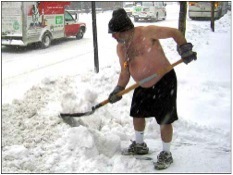
We’ve got some great writers up here in Canada, eh? Like, you guys probably think that Ernest Hemingway’s the best thing since sliced bacon. But a lot of people don’t know that old Ernie had the stuffing beat out of him by Canadian writer Morley Callaghan in a boxing match in Paris back in the 1920s. (So much for your Nobel prize there eh, Ernie?)
Speaking of Nobel prizes, I should mention Margaret Atwood. Now, Margaret’s a real good gal, eh? She can hold her beer and paddle a canoe with the best of us but she’s a pretty good writer, too. People say she should win a Nobel, but she’s been standing in line for so long now that they’ve lost interest in her (like we have with Prince Charles). But it doesn’t change the fact that she’s smart as a whip. About our great Canadian literary culture, she said:
“Canadians are forever taking the national pulse like doctors at a sickbed: the aim is not to see whether the patient will live well but simply whether he will live at all … Our stories are likely to be tales not of those who made it but of those who made it back, from the awful experience — the North, the snowstorm, the sinking ship — that killed everyone else.” – SURVIVAL: A THEMATIC GUIDE TO CANADIAN LITERATURE, Chapter 1
Like I said, she’s clever. And she’s right! Even if she couldn’t have licked Ernest Hemingway in a boxing match in his prime (but I bet she could now, eh?)
What Canadians are most often challenged to survive is our great Canadian wilderness.
OUR GREAT WILDERNESS

Whenever Americans want to make a cowboy movie, they come north to film it, eh? Because all their wilderness is gone. We still have some of ours, although Prime Minister Harper is working hard every day to change that, and to make us more modern and civilized like America. Indoor plumbing, Velcro®, remote control tee-vees. What’s next?
Well, what’s next is the very popular Northern Gateway/Keystone XL Pipeline, eh? Because whenever Canadians want to make money, they go south because all our money up here is gone. But Americans still have most of theirs (although their politicians are working hard every day to change that, and to make them more modern and civilized like, say, Russia – or maybe the Chinese).
Anyway, with the wilderness gone, what is there left to survive?
Zombies of course!
OUR GREAT ZOMBIES

Hold your horses, eh? That’s no zombie, that’s Prime Minister Harper (although it’s kind of hard to tell the difference sometimes because he never blinks). Anyway, Prime Minister Harper occasionally takes breaks from rehearsing with his rock band the Van Cats to negotiate trade deals, like the one with China that introduces a mysterious street drug into Canada called L that unleashes a zombie apocalypse.
You probably never wondered what a zombie apocalypse would look like up here, but I tell ya’ – it’s pretty scary! I wrote a book about it, eh?
The zombie apocalypse begins the same night your girlfriend skips town with the $5,000 you owe your drug dealer. Fortunately, you know a place you and your best friend Frankenstein can hide out – a marijuana grow-op in the hinterlands of rural BC ruled by a psychopathic evangelist who believes she is the Angel of Death. Take a toke and relax. Everything’s going to be fine …
Now why would anyone write a zombie book that takes place in Canada? Well first off, there’s what Margaret said about how we’re always taking the pulse of the patient to see if he’s alive. That sounds right up Zombie Alley, if you ask me! And as for survival, well isn’t that the whole point of a zombie story?
Some of you might be asking: without any wilderness left to challenge your survival, how can this novel truly be Canadian?
Well, like I said, Americans travel north for our wilderness (what’s left of it) and we go south for money. But in abandoning nature for civilization, we’ve created a new wilderness – one inside ourselves that’s every bit as ugly and toxic as the slag heaps at Fort Mac, one we try and fill with cash and dope and a new flat-screen tee-vee or fishing boat or something like that.
But that’s just us, eh? Dead inside and following the herd, slack-jawed and trying to consume enough to fill that bottomless hunger the wilderness left behind when it vanished.
So thanks for reading. I hope you’ll check out my book, eh? I worked real hard on it.
– la fin –
(‘cuz this was made in Canada, part of it has to be in French, eh?)
Bio: Jamie Mason is a Canadian sci-fi/fantasy writer whose short fiction has appeared in On Spec, Abyss & Apex and the Canadian Science Fiction Review. His second novel KEZZIE OF BABYLON was released by Permuted Press in March, 2015. Learn more at www.jamiescribbles.com
#sfwapro
March 10, 2015
Guest Post from Pete Sutton: On Crowdfunding North by Southwest
In February 2014, at a North Bristol Writers meeting I said “We should write an anthology!” which was greeted by enthusiasm by all present. Writing the stories was the ‘easy’ part; how would we get it published?
In 2014 The North Bristol Writers created an anthology and successfully funded it via Fundsurfer. The book is now available to buy in eBook and paperback from Tangent Books & Amazon worldwide.North by Southwest is an anthology by ten writers. The tales are mainly set in Bristol and are an eclectic and unlikely series of journeys through landscape and story. These are all new stories, never before published, and show great variety. Here lies the strength of the book, showcasing as it does the work of the writers after a year or so of collaboration.
Bristol is a vibrant, creative city and the tales here are infused with that energy. Bristol has had such a great effect on transport through the ages – it’s an airplane city, a railway city, and a port city – so naturally such themes recur, as does the theme of ‘North’.
***
In February 2014, at a North Bristol Writers meeting I said, “We should write an anthology!” which was greeted by enthusiasm by all present. Writing the stories was the ‘easy’ part; how would we get it published?
A few friends had run successful Kickstarters and we toyed with the idea of crowdfunding but weren’t sure how to start. Then I had a chance meeting at a reading evening (the much missed Small Stories) with another writer – Amy Morse http://www.amymorse.co.uk/ who had just successfully funded her novel Solomon’s Secrets via a funding platform I’d not heard of – Fundsurfer, which is a Bristol based crowdfunding platform, very similar to Indiegogo and Kickstarter. I invited Amy along to a North Bristol Writers meeting to talk about her experience and after her talk we determined to use Fundsurfer. Mainly because Fundsurfer was local and the stories were mostly set locally.
Christmas Steps by Pete Sutton. Art by Claire M Hutt
We got on with writing the stories and recruiting local artist Claire M Hutt to do the cover and illustrations. Claire was a key addition as we could use her art for pledge rewards. I had a couple of meetings with the Fundsurfer guys, who were super helpful and also with local publisher Tangent who were going to facilitate the publishing process.We budgeted for Typesetting, Design, Printing and postage & packing then set up the Fundsurfer page. The most difficult bit was making the video, no-one in the group had any experience of making videos. We recorded a few hours of footage and in the end I only used the audio from it.
We launched the Fundsurfer at the end of October 2014 at BristolCon, who very generously donated several sets of tickets for the 2015 Con that we could use for pledge rewards, and set it to run for until mid-December.
Friends who’d had successful crowdfunding campaigns gave some great advice. The best piece of advice was “build the crowd, then the funding” so we had spent a while telling everyone we could think of that the book existed and needed funding. So that when we launched the Fundsurfer campaign a lot of people already knew about it.
I’ve mentioned a couple of rewards already and obviously the rewards and the levels are key to the success of the project. We started with a long list of about fifteen rewards but with the advice of ‘less is more’ from the Fundsurfer guys we whittled them down to seven. Apparently it’s like the way people choose wine, some will go for the bargain basement (but in fact we had very few go for the lowest reward level) some will go for the mid-range and some will go for the top range. The majority of people will go for the mid-range. So having a range of rewards is more important than having a variety of awards. We budgeted for a certain number of physical copies and worked out the likely number for P&P. P&P kills many crowdfunding campaigns & is something you need to give careful consideration to!
We got some nice publicity from Bristol 24/7 and a very entertaining ‘celebrity endorsement’ from local writer Jonathan L. Howard.
With 10 writers, an editor and an artist involved we thought that funding would work out if we could all get a few friends & family to pledge. It was still a nailbiting few weeks as the project slowly accumulated the funds; slower than I would have liked. We reached our funding goals a few days before the project was due to end and got pretty much what we asked for, getting just £62 over our goal.
Often it felt like all those times in school when you tried to get money out of people for doing a sponsored walk, or similar. We mainly sold it as a pre-order for the book, but potentially didn’t set expectations well enough, that once we had the funding the process of getting the book published would begin, and as we all know, everything in publishing takes a lot longer than you think. However the actual process has been very smooth, thanks to Tangent. All the funders have now received their eBook and the print book is imminent. We are looking to have a local launch and have started planning our next anthology.
Would I crowdfund again? It’s a very viable way to fund a project but it does rely totally on people’s goodwill and it is a lot of hard work. The amount of people who will “get round to it” is very large and there is an inevitable amount of nagging, which I didn’t like at all. However we were successful and it was the most equitable way of creating the book.
 Bio: Pete Sutton is a UK writer and blogger, one of the organisers of Bristol Festival of Literature and contributing editor to Far Horizons magazine . He is a contributor to the Naked Guide to Bristol and you can read his latest published story – The body in the lake in Fossil Lake 2 published by Sabledrake Enterprises.
Bio: Pete Sutton is a UK writer and blogger, one of the organisers of Bristol Festival of Literature and contributing editor to Far Horizons magazine . He is a contributor to the Naked Guide to Bristol and you can read his latest published story – The body in the lake in Fossil Lake 2 published by Sabledrake Enterprises.
Follow him on Twitter as @Suttope and read his blog here: http://brsbkblog.blogspot.co.uk/ & his website here: http://petewsutton.com/.
#sfwapro
March 9, 2015
Writers and Natural Talent: More About that MFA essay
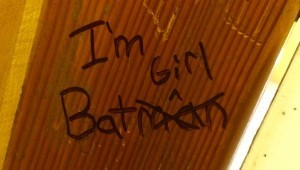 Recently, Ryan Boudinot wrote an essay for The Stranger titled “Things I Can Say About MFA Writing Programs Now That I No Longer Teach in One“. Among other things, he observed:
Recently, Ryan Boudinot wrote an essay for The Stranger titled “Things I Can Say About MFA Writing Programs Now That I No Longer Teach in One“. Among other things, he observed:
Either you have a propensity for creative expression or you don’t. Some people have more talent than others. That’s not to say that someone with minimal talent can’t work her ass off and maximize it and write something great, or that a writer born with great talent can’t squander it. It’s simply that writers are not all born equal. The MFA student who is the Real Deal is exceedingly rare, and nothing excites a faculty adviser more than discovering one. I can count my Real Deal students on one hand, with fingers to spare.
This is, in my opinion, wrong-headed, elitist, and insulting. Other people have replied eloquently. Chuck Wendig said: This is one of the worst, most toxic memes that exists when it comes to writers. That somehow, we slide out of the womb with a fountain pen in our mucus-slick hands, a bestseller gleam in our rheumy eyes. We like to believe in talent, as if it’s a definable thing — as if, like with the retconned Jedi, we can just take a blood test and look for literary Midichlorians to chart your authorial potential. Is talent real? Some genetic quirk that makes us good at one thing, bad at another? Don’t know, don’t care.
What I know is this: your desire matters. If you desire something bad enough, if you really want it, you will be driven to reach for it. No promises you’ll find success, but a persistent, almost psychopathic urge forward will allow you to clamber up over those muddy humps of failure and into the eventual fresh green grass of actual accomplishment.
Writers are not born. They are made. Made through willpower and work. Made by iteration, ideation, reiteration. Made through learning — learning that comes from practicing, reading, and through teachers who help shepherd you through those things in order to give your efforts context.
(As with all of Chuck’s posts, worth clicking through to read in its entirety)
(Also worth clicking through to read.)
And my reaction is much the same as theirs.
A Small Confession
I will confess now. I have one of those literary degrees. Mine’s fairly highfalutin'; I got it from the Writing Seminars of the Johns Hopkins University, where the people I studied with included John Barth, Steve Dixon, Jean McGarry, and Madison Smartt Bell. Post-degree, I stuck around on fellowship for a while.
And I think what Boudinot is mistaking for talent is more the result of working with students who have both been hampered by the educational system and also just not having done enough of the three things you must do in order to be a good writer. (Will I reveal them? Sure. Keep reading.)
Writing is hard. Think of what happens with words, how a reader interprets them, how they may bring meanings with them that the writer never anticipated. How a scene is constructed from the trail of words on the page by means of evoking certain things in the reader’s head.
That’s magic. That’s amazing. That’s… an act so profoundly unlikely and amazing that it humbles me every time I set out to do it.
I am speaking as one of the people who has been told they are talented. I know I have a facility with language. But I think it says more about my education and reading as a child/teen than anything else, because I read and read and read, and did it all over the place, including one summer where I steadily worked my way through the folklore and mythology section of the children’s library, because I’d exhausted all the fiction.
Writing 1,000,000 Words
There is an axiom in some circles: to get good, genuinely good, at writing, you must write 1,000,000 words. This is not an exact science, but as a rule of thumb, it is not a terrible one.
But it is not entirely true. To become a good writer, you must perform a combination of three things.
You must write. You must write and write and write. At first it will be hard to know how to get a character across the room. Later you will learn more complicated things. Writing will always get more complicated, in my experience, but we learn to trust ourselves to sit down with a blank page and know that we will emerge with a story.
You must read. You must read good stuff, and try to figure out what makes it good. You must read appealing stuff, and try to understand how its draw is created. You must read amazing stuff that makes you weep because you will never be that good, and then you must go and try to be that good nonetheless.
You must think. You must notice the world around you and try to understand it. You must exercise empathy and try to pry into some of the secrets of the human heart and psyche, even if it means admitting some things about yourself in the process.
This is something I tell my class, because I know it is true. I have been seeing it in action for almost three decades now. If you write and think about writing, you will get better, even if people are actively trying to hamper you. That is the secret of teaching writing. I can help you get better more quickly in a class, but the degree to which is entirely up to you and how much effort you are willing to put in.
There are Mozarts, natural geniuses. I think they are far fewer and farther in between than people are willing to admit. There are writers who read deeply as children. I was one and it gave me a head start. There are writers who started writing and sending out early. There are writers who set out to imitate their heroes and worked doggedly to do so. That is the norm.
Are there terrible writers who will never get better? Well. There are some getting better a lot slower than others, and I would suspect often it’s a case of a lack of number three. But better? If you do something often enough, you will get better at it eventually. And that’s what is, to my mind, important.
Guest Post from John Johnston III: Fictional Characters
Leaving the character as an essentially blank canvas to be filled in later by what the character does is far more effective than actually going into detail about them.
It’s an aphorism that great fiction requires a great plot, but it also requires great characters. But what are great characters, and how do you create them?To begin with, great characters must seem real: not superheroes, not perfect, not omnipotent and certainly not omniscient. Sometimes they make a wrong decision. Sometimes they’re afraid or even petty. Sometimes they do stupid things. My own favorite character has a very serious problem with authority. Good characters, like real people, have flaws, and may even have serious or crippling ones. If your characters do have such flaws they will have an appeal to your reader that no heroic cardboard paladin could ever match. Readers have even been known to fall in love with tragically flawed characters.
Great characters have their own complex motivations. Even in fantasy tales of good versus evil, every significant character needs to have their own motivation for what they are doing. Whether it is love, duty, hate, revenge, lust, greed or atonement, the reader needs to know just what it is that motivates the character to do what they are doing. Whether told by backstory or brought out via conversation, each significant character’s motivation should be exposed in order to make them more interesting to the reader, and to get the reader more involved in the plot through the characters. Along with having their own motivation, every significant character should be in pursuit of something – victory, success, escape, money, fame, freedom or even just their next meal – and the reader should know what it is.
Great characters are not described in detail. Certainly the character’s general appearance and nature should be presented; but the details of the character should be spelled out by the character itself in the character’s motivations, actions and dialogue. Leaving the character as an essentially blank canvas to be filled in later by what the character does is far more effective than actually going into detail about them. Additionally, any details deliberately left out by the writer will be automatically filled in by the imagination of the reader, thus making for a more personal and more enjoyable reading experience. A writer can even use the sudden exposure of a previously-undisclosed facet of a character as an effective plot device.
Now that as an author you have created some great, human, flawed, motivated characters, what do you do with them? You ruin their lives. You do that by menacing or hurting them or someone (or something) they love, by putting them in harm’s way, by tormenting them, by making them suffer. Why? So the reader can see who they really are. As Dwight Moody famously said, “Character is what you are in the dark,” and when things are darkest for your characters is when the reader learns the most about them. Failure also helps with character development: how someone deals with failure is far more telling about them than how they deal with success ever is, both in fiction and in real life.
And, last but not least, have at least one character for everyone to sympathize with. By this I don’t necessarily mean to try to present one character in a way that is sympathetic to everyone; what I mean here is that given the totality of human nature, try to have enough variation in the characters that at least one of will be able to appeal to a reader no matter what the reader’s nature, worldview, philosophy, politics, or sexuality are. Yes, this is an argument for diversity in characters, but it’s not a political argument: there are readers out there of all types, and as a writer who wants to succeed you want your fiction to appeal to all of them, or as least as many as you possibly can.
Great characters make great fiction, so be sure to make great characters.
Bio: John Johnston III is a scientist, a fiction and non-fiction writer, a board vice chairman, a university faculty member, a member of Science Fiction and Fantasy Writers of America (as well as the chair of its Grievance Committee and a recipient of its highest honor), a lifelong baseball fan, a patriot, and a political independent. He thinks that personal websites are even more vain than requested bios and refuses to have one.
#sfwapro
Last Week, This Week, All Around the Town
What are the documents of Tabat? In an early version of the book, I had a number of interstitial pieces, each a document produced by the city: playbills, advertisements, guide book entries. They had to be cut but I kept them for this purpose. Careful readers will find clues to some aspects of Beasts of Tabat in them.
As you may have noticed last week, we kicked off two months of interesting guest blog posts on this blog, which is part of the promotion for Beasts of Tabat, the novel I have coming out next month.Last week, the guest posts were Kim Mainord with “Your Mileage May Vary”, Sandra M. Odell on fantasy podcasts, Ken Altabef on using Inuit mythology in his work, Rhonda Eudaly with “Writing is Only Glamourous Until This Face Appears,” and Raven Oak talked about “Linguistics in Fantasy — To Thee or Not to Thee”.
This week, we have John Johnston III musing on Fictional Characters, Pete Sutton will talk about succesffully crowdfunding an anthology, Jamie Mason will wax philosophical about Candadian zombies, Mercedes M. Yardley will discuss finding your literary voice, and to wrap up the week, J.T. Gill will tell you why reading fantasy makes you smarter. I’ll also be posting snippets from the sequel to Beasts of Tabat, which I’m working on right now, keeping you informed of any recent SFWA developments, and talking about point of view and being inside a character’s head. And finally — for online writing class news, either sign up for my mailing list at the bottom of this post, or keep checking this site.
What else is coming up in March and April? There’ll be some giveaways, including audio copies of my collection Eyes Like Sky and Coal and Moonlight, both hard and e-copies of my collections and the new novel, and some cool surprises.  You’ll also see “Documents of Tabat,” a number of small pieces of fiction, each of which ties into the book (they’re interstitial pieces from an earlier version of the novel), starting March 24 and continuing on weeks through April 21st. I’ll point you to the GoodReads giveaways when they come up, and at the end of the week, I’ll include a wrap-up of the various places I’ve guest posted and any places reviews or other mentions have occurred.
You’ll also see “Documents of Tabat,” a number of small pieces of fiction, each of which ties into the book (they’re interstitial pieces from an earlier version of the novel), starting March 24 and continuing on weeks through April 21st. I’ll point you to the GoodReads giveaways when they come up, and at the end of the week, I’ll include a wrap-up of the various places I’ve guest posted and any places reviews or other mentions have occurred.
Some of you reading this have been with me since I first started writing stories set in this world; others are new to my words. Either way, I hope you’ll enjoy the novel that I’m finally getting the chance to lay before you, and I hope you’ll share some of the fun of the next couple of months.
#mc_embed_signup{background:#fff; clear:left; font:14px Helvetica,Arial,sans-serif; }
/* Add your own MailChimp form style overrides in your site stylesheet or in this style block.
We recommend moving this block and the preceding CSS link to the HEAD of your HTML file. */
Subscribe to my mailing list for information on upcoming classes
March 6, 2015
Guest Post from Raven Oak: Linguistics in Fantasy—To Thee or Not to Thee
Raven Oak discusses linguistics in fantasy.
“Since your book’s technological advances place it during the Renaissance, your characters are wrong because they should be speaking like Shakespeare.”
Imagine my surprise when a friend and avid fantasy reader said this to me. I can’t remember the last time I met someone who believed that level of linguistic authenticity necessary in a fantasy world. While I love Shakespeare, if every fantasy novel I read was written with historically and culturally accurate language, I’d go mad. I don’t speak German any more than I speak Old English. Egad! Not even the people of Shakespeare’s time spoke like Shakespeare.
Imagine if The Lord of the Rings trilogy were written like this:When Mister Bilbo Baggins of Bag Endeth announc’d that he wouldst shortly be
celebrating his eleventy-first birthday with a party of special
magnificence, thither was much talketh and excitement in Hobbiton.
Or like this:
Hwanne Dryhten Bilbo Baggins of Faetels Ende abeodan se he dulmúnus aer gebréfan beon he endleofan-fyrest ongean a gebéorscipe fram déore, þider beon fela acwepan end onwæcenness in Hobbiton.
Not so bad in Shakespeare’s tongue, but how enjoyable would the reading be in Old English?
It’s a common misconception that all fantasy is based upon medieval Europe, and everyone talks like they’re in a Shakespeare play.
One reason I call shenanigans on this misconception is that when the day is done, it’s fantasy. It’s up to the author to build a believable world however they wish. That’s not to say that linguistics doesn’t play a crucial role in world building, but as the author, you have some wiggle room in how you develop your world or universe.
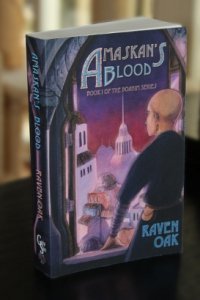 In my fantasy novel, Amaskan’s Blood, the world of Boahim consists of twelve kingdoms. Each one has their own culture that I built from a mixture of Earth cultures. But at its core, Boahim is a fantasy world that doesn’t exist on planet Earth and never did. I can set their scientific advances to be comparable to Middle Ages France, and yet, use magic to control indoor plumbing if I wish.
In my fantasy novel, Amaskan’s Blood, the world of Boahim consists of twelve kingdoms. Each one has their own culture that I built from a mixture of Earth cultures. But at its core, Boahim is a fantasy world that doesn’t exist on planet Earth and never did. I can set their scientific advances to be comparable to Middle Ages France, and yet, use magic to control indoor plumbing if I wish.
But what about linguistics? More specifically, word choice? If a kingdom is based on Renaissance France, must I write the novel in Old French? Tolkien certainly didn’t, and he was a linguistics master.
Yet Linguistics is more than word choice. It’s phonetics, morphology, syntax, semantics, pragmatics, and the order of parts of speech. (You can read more on each of these here.) These are all elements an author must consider as they write a story in a fantasy world.
Rather than dealing with absolutes, writers should consider linguistics as an essential piece of world building. You would no more have a character in Renaissance France talking about gigabytes or than you would a scullery maid speak with a refined and educated diction.
So how do we find balance with our linguistics?
Your language must be believable. It should fit the time period and culture of the society, unless it has a strong reason not to do so.
Don’t overdo it with newly invented words. If I need a glossary at the end of the book to translate all your made up words, I’ll be sucked out of my enjoyment to do “homework.” Harry Harrison’s West of Eden comes to mind. I made it twenty pages in before the chore of translation drove me to toss the book in the “donate” bin.
Don’t overdo dialects. Dialects are also indications of language and cultural status, and should be used sparingly. If over used, it can fatigue the reader. (You can read more about dialect here.)
While Tolkien sprinkled bits of Sindarin, Khuzdul, and the Black Speech throughout his trilogy, he did so sparingly enough that it became flavor text—enrichment to his world building rather than a stopping block for the reader. That should be the author’s goal as well—enrichment.
While revising my fantasy novel, I kept a running list of terms that felt modern or out of place as I reread the novel. Then I used the Online Etymology Dictionary to look up the offending words. (There were over 300 of them, but it was well worth looking them up to ensure a good reading experience.)
For example, the word faux pas, French for false-step, dates back to 1670. In Boahim, one kingdom’s culture is heavily influenced by Renaissance France. It made sense in my timeline and culture for the word faux pas to exist. All that was left was double-checking whether a particular character would know and use the word. Word choice is as much a part of who your character is as the culture in which they belong.
If the time period or culture had been wrong—say from the 1800’s—it’s my job then to research why/how the word came about. I would have to make the ultimate choice on whether that word fit into the world I’ve established and the character using it.
Ultimately, it is up to the writer to build their world and decide what the characters would and would not know. Do your homework with your world building, and we’ll gladly follow the characters on their journey.
Bio: Raven Oak is the author of the bestselling fantasy novel, Amaskan’s Blood, and the upcoming sci-fi novels, Class-M Exile and The Silent Frontier. She spent most of her K-12 education doodling stories and 500 page monstrosities that are forever locked away in a filing cabinet.
She lives in Seattle, WA with her husband, and their three kitties who enjoy lounging across the keyboard when writing deadlines approach.
For more information and excerpts, visit http://www.ravenoak.net
Raven can also be found on the following sites:
Twitter: @raven_oak
Facebook: http://facebook.com/authorroak
Goodreads: https://www.goodreads.com/raven_oak
Google+: https://www.google.com/+RavenOak
YouTube: https://www.youtube.com/user/kaonevar/

